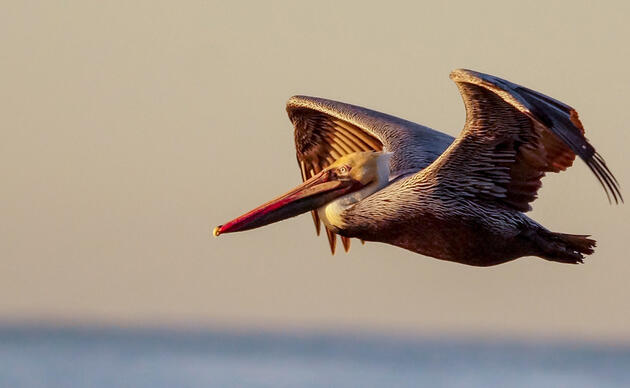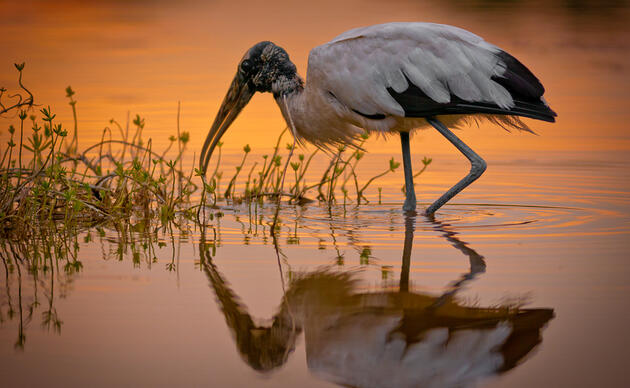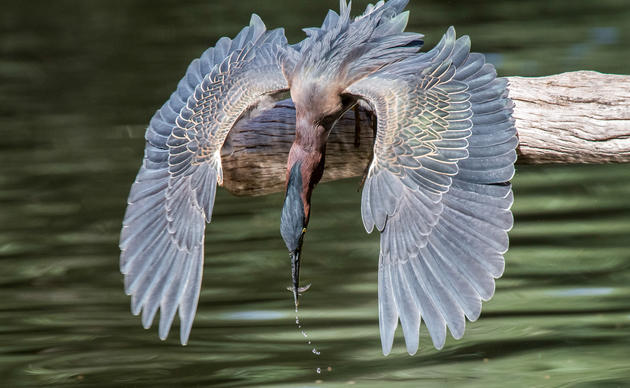At Audubon, we have long known that where birds thrive, people prosper. Birds are the literal and proverbial canaries in the coalmine. The 2019 Survival by Degrees report from Audubon demonstrated the importance to birds of addressing climate impacts. Audubon South Carolina has been working to advance climate and bird friendly practices on the ground and to support passage of legislation and appropriations for land conservation, resilience and clean energy. We have seen a growing commitment to conserving the resources we have and securing a clean and resilient future, however there is still a long way to go.
Before focusing on what else there is to do, I wanted to take a moment to highlight a source of optimism here in South Carolina. There is an emerging collaboration between conservation and economic development, as the two become ever more aligned on preserving our quality of life in South Carolina – a quality of life dependent on our precious natural resources that birds like Brown-headed Nuthatches, Eastern Meadowlarks, and Wood Thrush also rely on. Climate change is predicted to severely impact these priority species, and the work being done in the clean energy and resilience sector is crucial to ensuring their persistence in our state. Sustain SC is helping lead the way by connecting the sustainability goals of business in South Carolina with local solutions for the benefit of our economy, environment, and people.
I was honored to be selected for the inaugural class of the Sustainability Leadership Institute last year alongside leaders from international corporations, local businesses, utilities, government and fellow conservation partners. We continue to work together, including through roundtables and participation in another unique project focused on raising South Carolina’s ranking on the UN’s Sustainability Development Goals from 37th to 25th.
The big news from this last week was the announcement of the Land and Water Action Fund (LAWF). A $500,000 contribution from Google, matched by the Wacamaw Community Foundation, went toward the LAWF’s first award to protect Waites Island, one of the last undeveloped barrier islands in South Carolina. Natural barrier islands are our first line of defense against impacts from storms and often serve as important habitat for birds and other wildlife. Voluntary contributions from businesses in South Carolina will support the LAWF and allow it to leverage state, local and federal dollars to create an even larger conservation impact and protect our most critical areas.
At the same event, business, conservation and government leaders listened to Milliken CEO Halsey Cook on their commitment to become Net Zero by 2050, and heard SC Governor Henry McMaster reiterating the time to act is now if we are to protect our most precious natural resources for future generations.
In recent weeks, we have also seen Governor McMaster prioritize infrastructure for electric vehicles and State Speaker of the House Murrell Smith convene an ad hoc committee to address South Carolina’s need to invest in clean energy to remain economically competitive as a state. The record funding for land conservation provided by the General Assembly last session and the ongoing statewide resilience plan will soon be making an impact on the ground.
I commend our state leadership and businesses for prioritizing conservation, but we know that we must keep up the momentum in order to reach goals like doubling conserved lands and achieving a clean energy future in time for us to protect our state from the worst climate impacts. I look forward to working with partners in all sectors to achieve these ambitious, but essential goals to ensure we have a South Carolina where both birds and people flourish.






